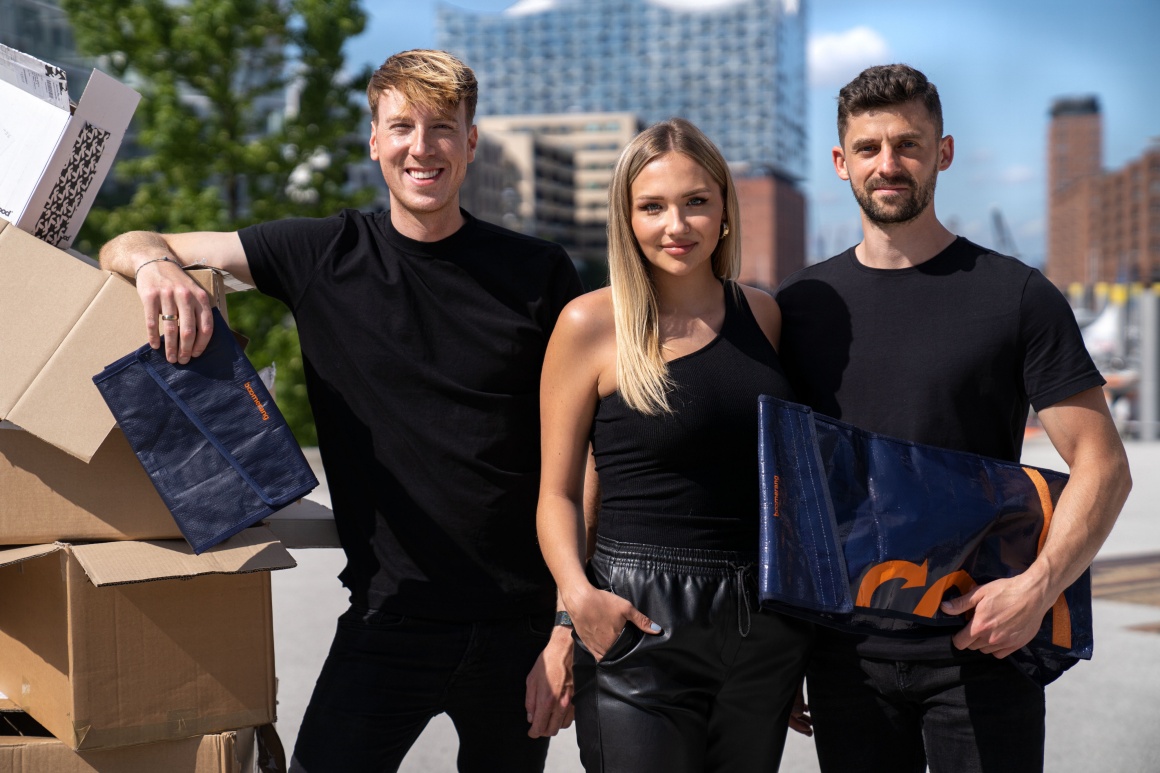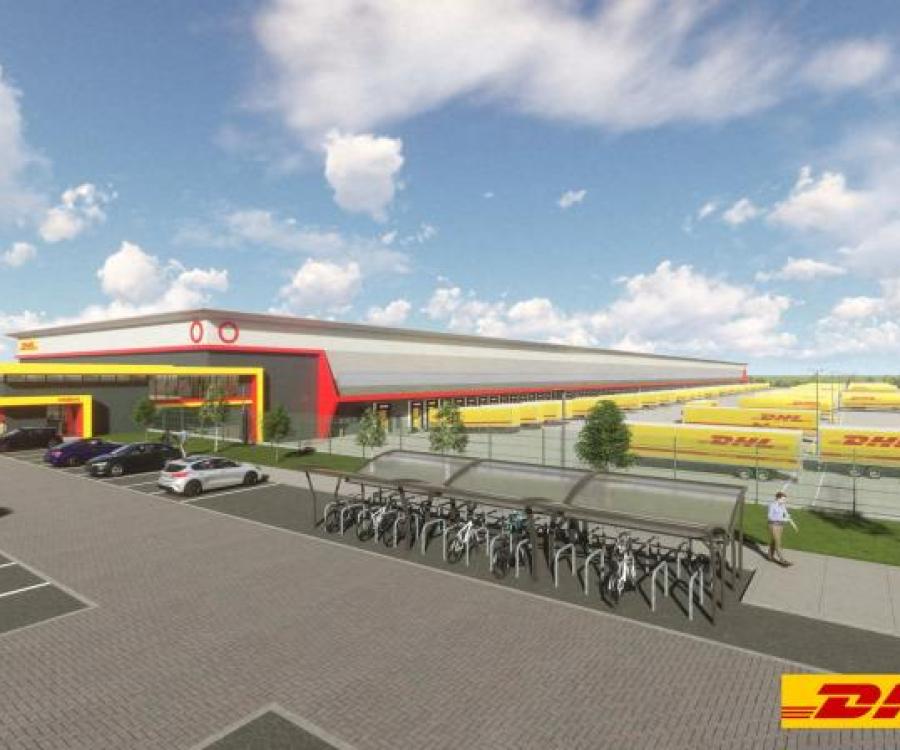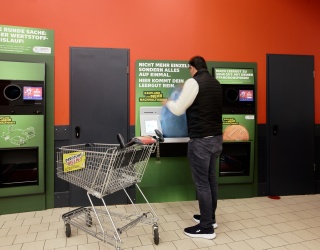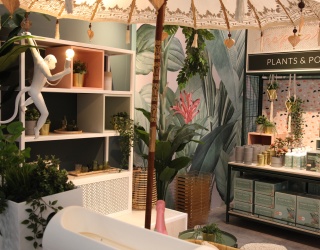Since the pandemic, online trade is booming like never before. But what sounds like a blessing can also become a burden. Packaging waste is increasing rapidly and polluting the environment. At the same time, the global crises are causing a shortage of resources – including paper and cardboard. The start-up Boomerang from Hamburg has developed a solution that could help both retail and the environment.

Marc, what was the idea behind Boomerang?
The idea for Boomerang was born in my cellar: Like many people, I had mountains of cardboard piling up and the rubbish bins are actually always overflowing. Fuelled by Corona, online retail is growing so much that the rubbish problem is getting worse.
Out of this frustration came the ambition to create something that would reduce the flood of waste in online trade, minimise the amount of empty packaging and still make online shopping attractive. For many millions of people, shopping via the internet is simply part of everyday life. We cannot change this trend, but we can make it more sustainable.
What does Boomerang offer and how does it work?
You simply select Boomerang as an additional shipping option in the online shop, deposit a deposit of 3 Euro, receive your order in a reusable pack and can then easily and free of charge simply throw the empty packaging into any letterbox. This way, the packaging ends up back with us, you get your deposit refunded and we can reuse the pack up to 50 times.
We have a pure B2B business model, which means that online shops pay a fee for the use of our packaging and thus save themselves the purchase of disposable cartons. In terms of price, we are in a comparable range, except that reusable systems are simply much more sustainable than single-use products - and that includes shipping cartons.
How do retailers benefit from this solution?
Our target group are online shops that mainly sell non-fragile goods such as clothes, shoes, drugstore items, office supplies, medicines, etc. But that's still almost half of the total. After all, these are almost half of all products shipped in Germany. These retailers are sharpening their sustainability profile and offering their customers another piece of the puzzle for a greener online trade. In the end, of course, it is the online shoppers who hold our packs in their hands, so the end customers are also part of our target group.
That's why we need to educate people that disposable paper and cardboard products like cartons also have a big negative impact on our environment, especially when we're talking about over 4 billion packages a year. Stamped, the carton tower reaches four times from the earth to the moon. And that's only because of cartons from Germany. So there is a lot for us to do.
What preparations do traders have to make to be able to work with you?
In the best case, our online shop customers send non-fragile goods. Users of shop systems like Shopify, WooCommerce & Co can install our own developed app within the shop software and integrate Boomerang in the check-out process. Larger shops with individual shops coordinate the IT connection bilaterally with us.
Boomerang must appear as an additional and voluntarily clickable shipping option in the shopping cart. A deposit of 3 Euro must be collected and there must be an API interface to our intelligent deposit and pooling system. Anonymised data is exchanged via this interface so that we can in turn trigger the deposit refunds as soon as the packs arrive at our central warehouse.
What cooperations with retailers already exist?
We cooperate with various associations such as the Händlerbund but also with reusable associations and initiatives. We are also talking to brick-and-mortar retailers about handing out our packs in their shops. This month, we will start our pilot test with ten online shops from the fashion and textile sector. From this pilot, we can derive important key figures such as return rates and more.
What is the feedback from retailers and customers so far?
The customers and retailers have all reacted very positively so far, because the topic of sustainability is actually close to everyone's heart. Customers are also demanding much more holistic sustainability efforts from their online retailers. This starts with sustainable products, CO2-calculators, sustainable dispatch and ecologically justifiable packaging, like our solution.
Are there already plans to expand the portfolio and the business model, for example to brick-and-mortar retail?
We are mainly talking to brick-and-mortar retailers about drop-off options and to bring new customers into the city centres and shops, but also about Click & Collect solutions. There are many exciting approaches, so we never run out of ideas.






